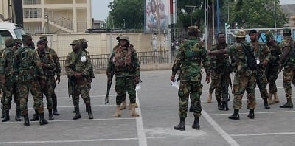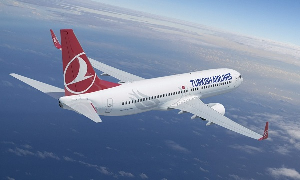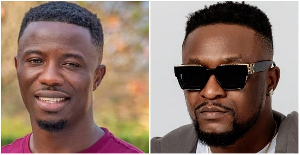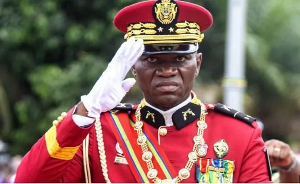Professor Alfred McBagonluri, President of Academic City University, Accra, has cautioned the State, particularly the security apparatus, against the deployment of the military to voting and collation centres in the upcoming 2024 General Election.
He said that was the only way to avoid voter intimidation and minimise political tensions during the polls.
"I think people just need to understand that voting is a civil responsibility. We all need to go out there and do it, but nobody should riot. We don't need to deploy the military to our polls to intimidate anyone. I just think it needs to be civil and it needs to be civilised," Prof. McBagonluri said.
He gave the advice in an interview with the media over the weekend during the 10th anniversary conference of the Mandela Washington Fellowship in Accra.
The Fellowship is a flagship programme of the United States (US) Department of State's Young African Leaders Initiative (YALI), which brings together young African leaders from various sectors to develop leadership skills, foster cross-cultural understanding, and create a network of future leaders committed to creating change on the continent.
The conference was held on the theme: "A Decade of Excellence: Empowering African Leaders for Sustainable Change."
At least eight people died, while several others were injured during the 2020 elections.
Prof. McBagonluri said voting to elect people to occupy leadership positions was a civic duty that must not lead to chaos and death.
He expressed concern over the violence that had characterised the country's recent elections, cautioning Ghanaians against repeating the same in the upcoming election.
"I'm worried about what I saw in Ejura in the last elections. I think that the civil duty of casting a ballot to elect who our leaders ought to be should not result in anybody dying in that process.
"Any form of death in exercising this democratic dispensation is a sad one, and we should not allow that to happen. Nobody needs to die for anybody to be a parliamentarian or president for that matter," he stressed.
He also called on leadership to be more selfless and prioritise the people's interests to ensure development. Since its inception in 2014, the Mandela Washington Fellowship has empowered over 7,000 emerging leaders from Sub-Saharan Africa with tools to drive social, economic, and political progress in their communities.
Dr. Laud Anthony Basing, President of the Mandela Washington Fellowship, said over the past decade, the Fellowship had empowered a new generation of African leaders who were passionate about driving and making a tangible impact in their communities and beyond the borders of Ghana.
"We have had impact projects in Kpando, we are going to project our impact projects in Sunyani, Wa, Tamale, Accra, and Kumasi. We're also impacting young girls, women, female entrepreneurs, and we are also impacting young leaders, including senior high school students," he said.
Going forward, he said, the Fellowship would expand its outreach to other areas of the country to ensure that no one was left behind. To achieve that, he said, the Fellowship would partner with other relevant stakeholders, including the US Embassy in Ghana, to build the capacities of members and individuals to enable them to make the required impact in their communities.
Madam Virginia Evelyn Palmer, US Ambassador to Ghana, commended the Fellowship for the successes achieved over the past decade. She urged the youth, especially the Mandela Washington Fellows, to adopt a servant leadership style, prioritise the needs of the many over their personal interests, and achieve the development goals of the country and the continent at large.
She also assured that the United States would strengthen the 17 different programmes it was currently undertaking in the country to make them more impactful and ensure that they achieved the targets for which they were established.
General News of Monday, 26 August 2024
Source: GNA

















